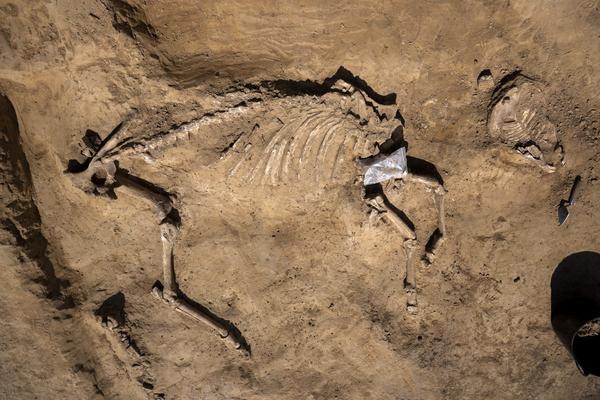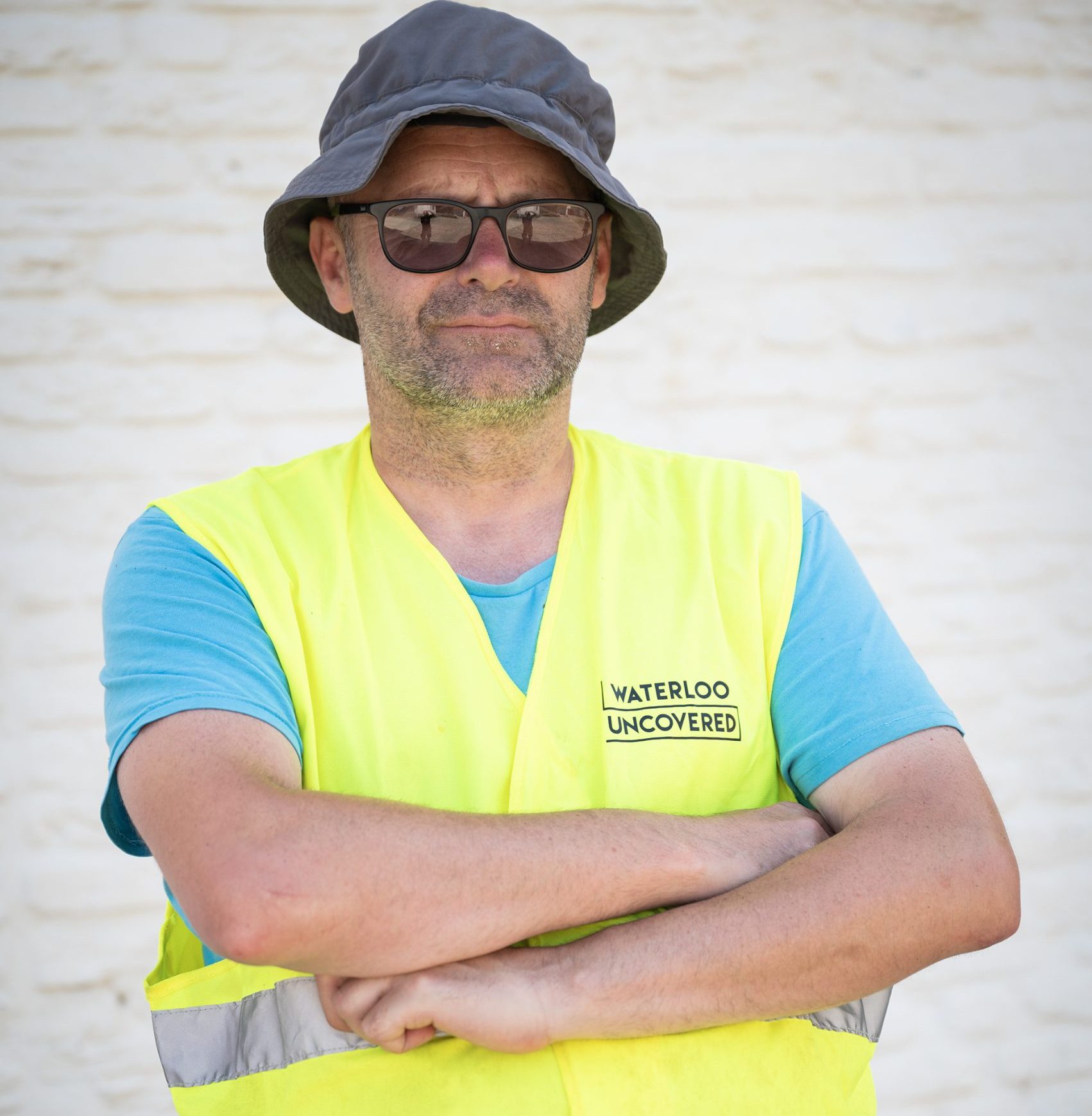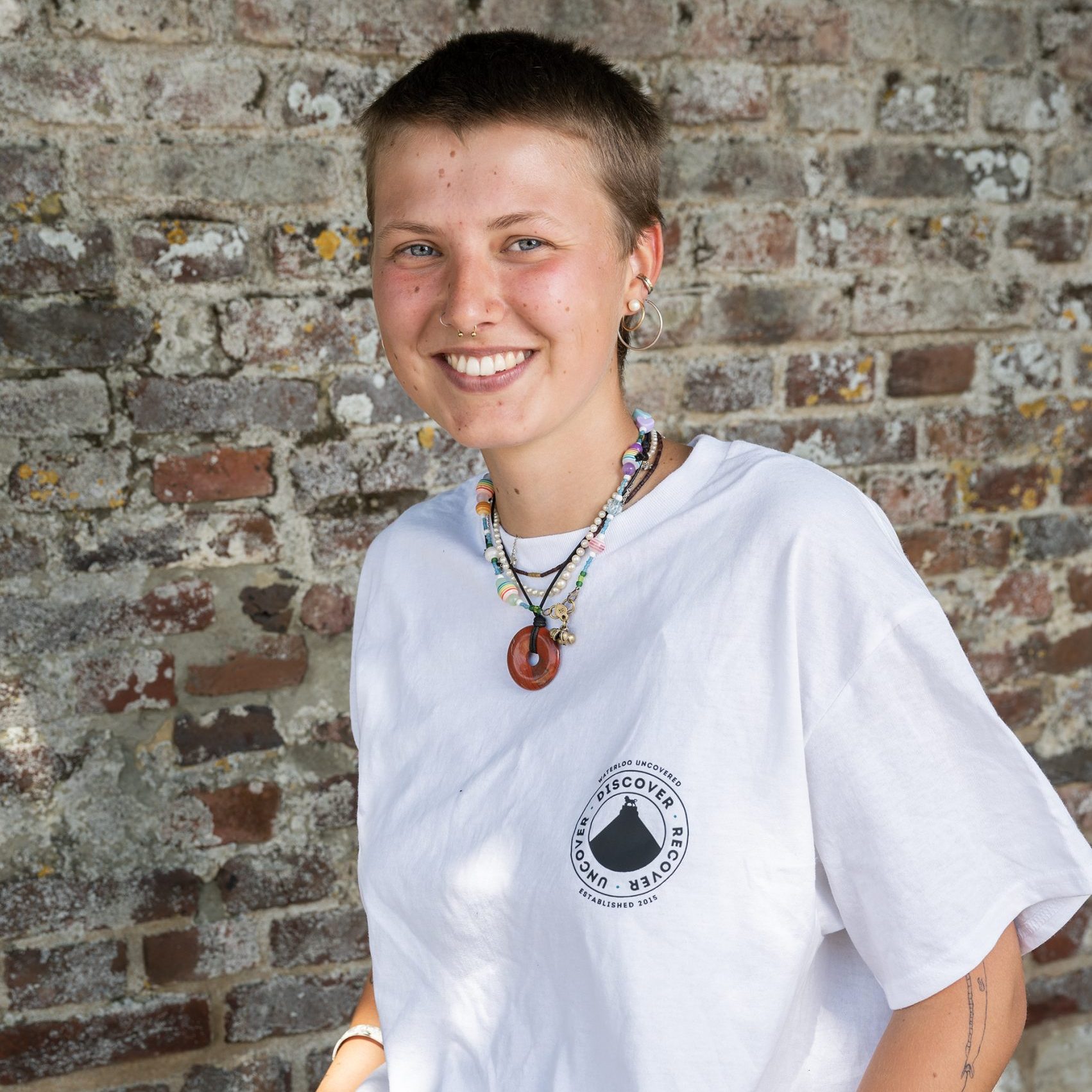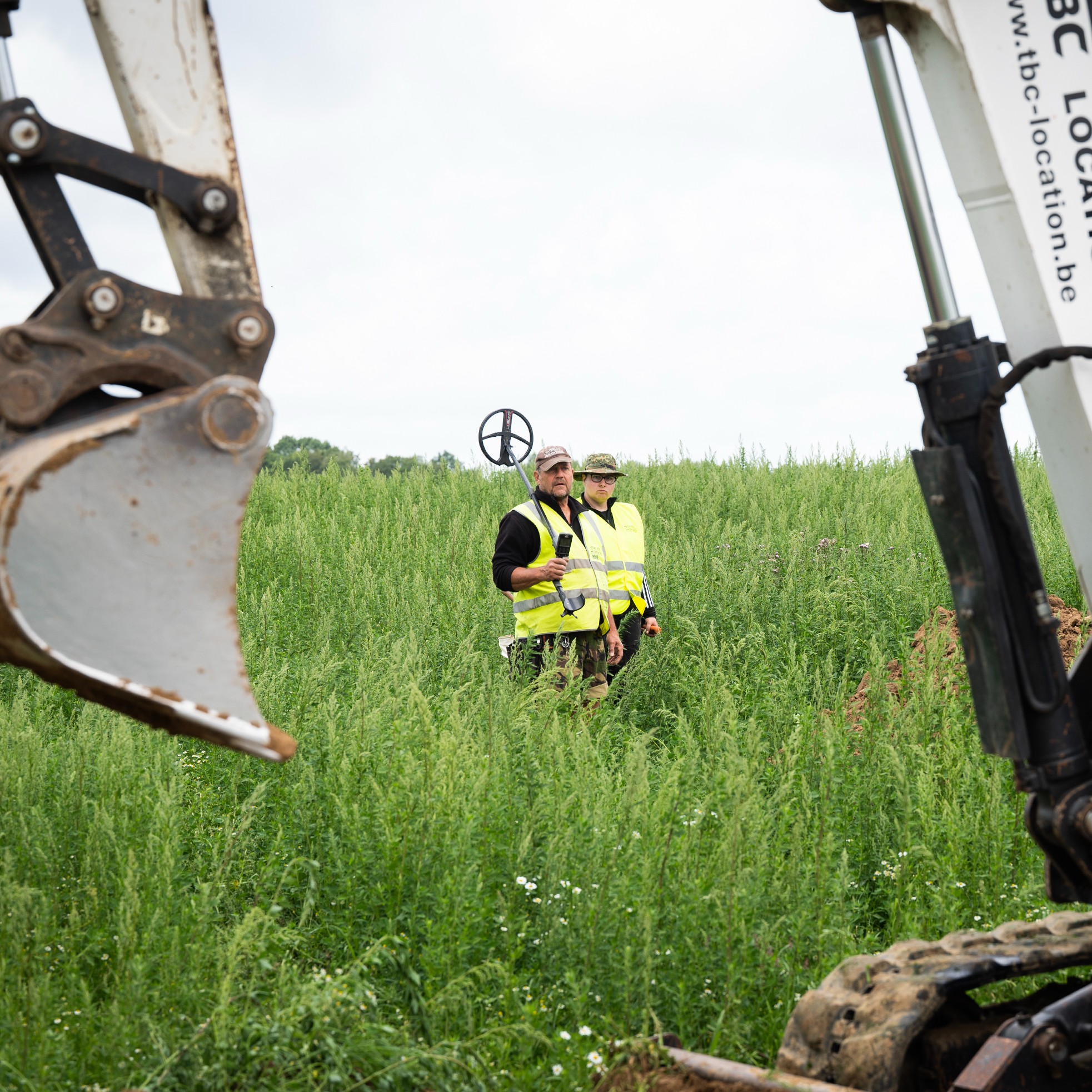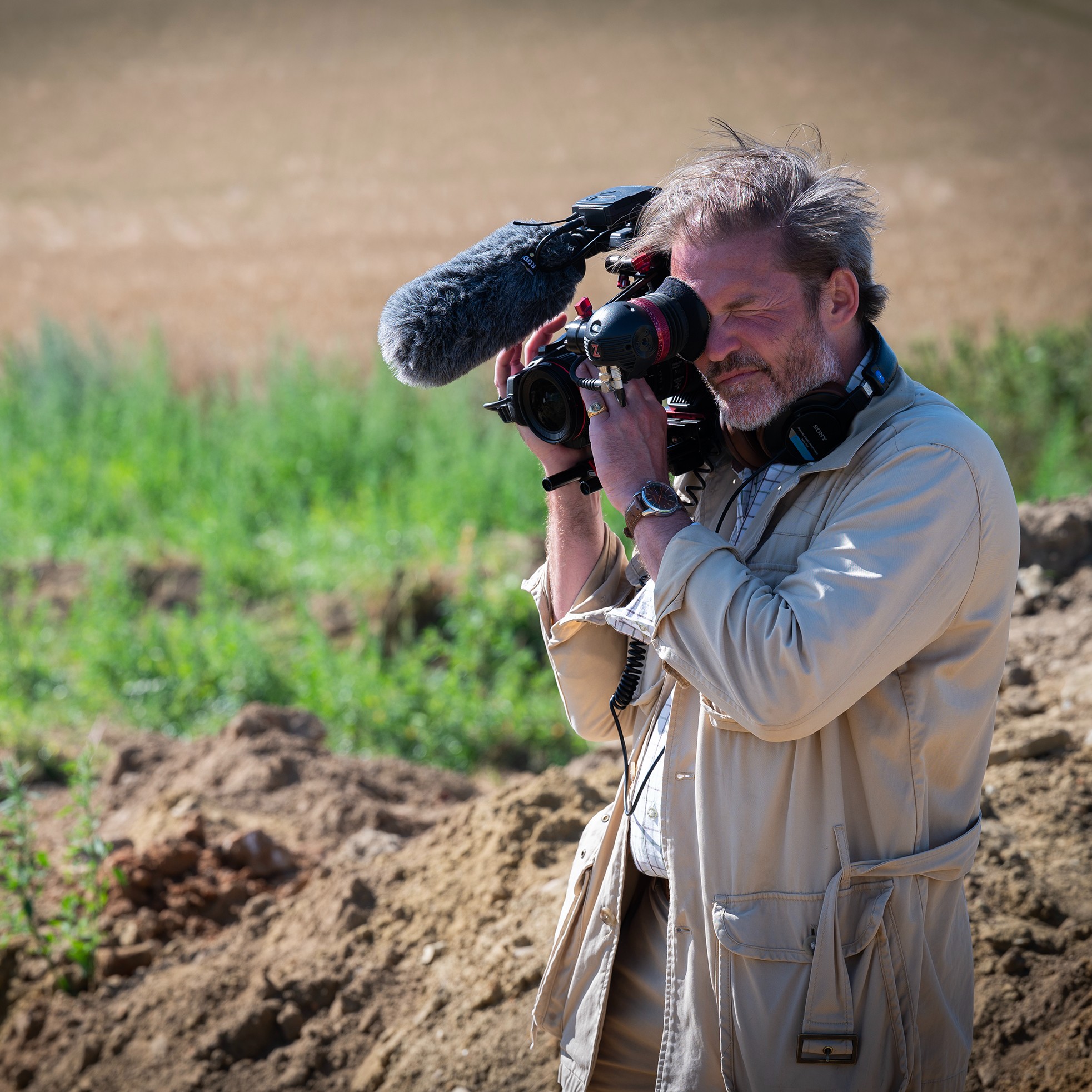Welcome to the latest edition of Waterloo Uncovered’s dig diary.
By Hattie Ford
In this edition:
- We’re shortlisted for two awards;
- We recap our exciting Virtual Programme including a test pitting activity;
- Our Battlefields Uncovered Summer School participants graduate;
- We look back on the best moments from last year’s excavation.
Charity Times Awards
We’re excited to announce that Waterloo Uncovered has been nominated for TWO Charity Times award! We’ve been shortlisted for the Charity of the Year award, competing against other charities with an income of less than £1 million per year. In addition, our co-founder and CEO Mark Evans has been shortlisted for the Rising Leader of the Year award. You can see the full Charity Times Awards shortlists here.

The winners will be announced online on the 3rd of September – wish us luck!
Virtual Veterans’ Programme Recap
Every year, we take a group of Veterans and Serving Personnel to the site of the Battle of Waterloo in Belgium, where we deliver a programme of support, education and hands-on archaeological practice. Due to the Coronavirus crisis, we were unfortunately unable to travel to Belgium this year, and our annual excavation could not take place. Like many organisations, WU has had to adapt to these unprecedented circumstances and come up with a new way to connect with our veteran participants and deliver our programme – so we went virtual!

Over the last few months, 25 veterans and serving personnel from the UK, the USA and the Netherlands took part in our Virtual Veterans’ Programme, delivered remotely via Google Classrooms. The programme consisted of a series of lectures from experts to introduce our participants to the basics of archaeology and the Battle of Waterloo, accompanied by virtual museum tours, quizzes, readings and discussions. Alongside the programme, participants were offered on-going support from our dedicated Welfare Team.
“This is what WU does so very well…sharing world class knowledge, enthusiasm and passion.”
Virtual Programme Participant
Some highlights from the Virtual Programme have been included in our series of Lockdown Lectures, available on YouTube and from the Explore section of our website. New lectures will continue to be published until the end of summer, so make sure you’re subscribed to our YouTube channel so you don’t miss anything!
To round off the programme, some of our participants got involved in a test pitting activity in their own gardens! Test pitting is a small-scale and cheap archaeological technique used to get an idea of what archaeological features and finds a site might contain when conducting a full-scale excavation is not possible. It involves digging a small pit, and carefully excavating any artefacts within it. These artefacts provide a sample of the potential of the site as a whole.

Two teams, one based in Yarm in Stockton on Tees and the other in Leyland near Preston, began the activity by researching their local area, including the historical background of each location and what archaeological work had previously been carried out there. This information was used to create a Desk Based Assessment (DBA) of each site, which helped participants to understand and interpret their finds. You can read the DBA for the Leyland test pit here, and for the Yarm test pit here, to find out more about the historical context of each site.
Supported virtually by our archaeologists throughout the process, each team carefully dug 1m by 1m test pits in their gardens to see what they could learn about their properties. In Yarm, finds included pieces of clay pipe, animal bone, and pieces of pottery and brick. In Leyland, finds included several pieces of glazed pottery, coal, a piece of an embossed glass bottle and tile. Many of these finds likely related to the construction of the house in the 1930s.
“Thanks for a great day, it was great to get involved. Give yourselves a pat on the back for a great activity well executed.”
Test pitting participant

The Virtual Programme concluded last week, and feedback from our veteran participants has been overwhelmingly positive. Many of the Virtual Programme participants will be joining us next year, when we will be able to return to Belgium for our annual excavation, and we look forward to meeting them all in person!
Battlefields Uncovered Summer School Graduation
The Battlefields Uncovered Summer School, a collaboration between Utrecht University and Waterloo Uncovered, also drew to a close this month, with an online graduation held on the 17th of July. The graduation ceremony bought together all of the participants and included virtual messages of congratulations from lecturers and course administrators to mark the end of a successful course.
All the participants who took part in Waterloo Uncovered’s Virtual Programme were also given the opportunity to join the Summer School, and convert what they had learned about archaeological methods and the Battle of Waterloo into ECTS (European Credit Transfer System) points. They were joined on the Summer School by more than thirty others, for a programme including lectures from experts, seminars and discussion groups. Course coordinator Vicki Haverkate was particularly pleased to see how well the students on the course from a variety of different backgrounds worked together – university students and veterans, who joined us from as far afield as Lima and Okinawa, all got along well and contributed enthusiastically to online discussions.

This was the third year of the Battlefields Uncovered Summer School and although it was a shame it couldn’t be held in person due to Coronavirus, the online version of the course was a resounding success. Participant feedback was extremely positive, and in our exit survey, all participants said they would recommend the course to other students and veterans.
“We will certainly run another course online next year, so keep an eye on our newsletter and website for updates about how to apply.”
Vicki Haverkate, course coordinator
A Look Back at 2019
Our annual two week excavation would have taken place at the beginning of July – but unfortunately, because of Coronavirus restrictions, we weren’t able to travel to Belgium this year. We’re looking forward to getting back out there in summer 2021, but in the meantime, we’re looking back at some of the highlights from our 2019 season! Scroll through the photo gallery below to remind yourself what we got up to last year, and learn about some of our most exciting discoveries….

The digger breaks ground and officially kicks off the 2019 dig at our new site of Mont-Saint-Jean farm. 
A team led by archaeologist Alistair Douglas investigate the small garden area in the middle of the courtyard at Mont-Saint-Jean farm, which was previously a cess pit associated with the former field hospital. 
Members of the team take part in the Reading to Remember marathon reading event in the chapel of Hougoumont farm. 
A close up shot of the 6 pound, iron solid shot French cannonball discovered in the Mont-Saint-Jean orchard. 
Supervisor Emily Glass gives Coldstream Guards 1815 reenactors and dig volunteers a briefing at Hougoumont farm. 
The finds team led by Hillery Harrison review over 58 musketballs found in the cornfield near Mont-Saint-Jean in only half a day. 
A group photograph of the 2019 Waterloo Uncovered team at Mont-Saint-Jean.

A close up of the Coldstream Guards button found at Hougoumont farm. 
The team investigate the newly opened trenches in the east side of the Mont-Saint-Jean farm orchard, overlooking the reverse slope. 
Members of the team excavate at by the North Gate of Hougoumont farm. 
An aerial shot of the full Waterloo Uncovered 2019 team in the courtyard of Mont-Saint-Jean farm after a hard day of work. 
Time Team’s Phil Harding teaching a group of veterans at Hougoumont Farm. 
Archaeologist Eva Collignon excavates the human remains found at Mont-Saint-Jean farm. 
A group of archaeologists, veterans and students hard at work in the orchard of Mont-Saint-Jean.

